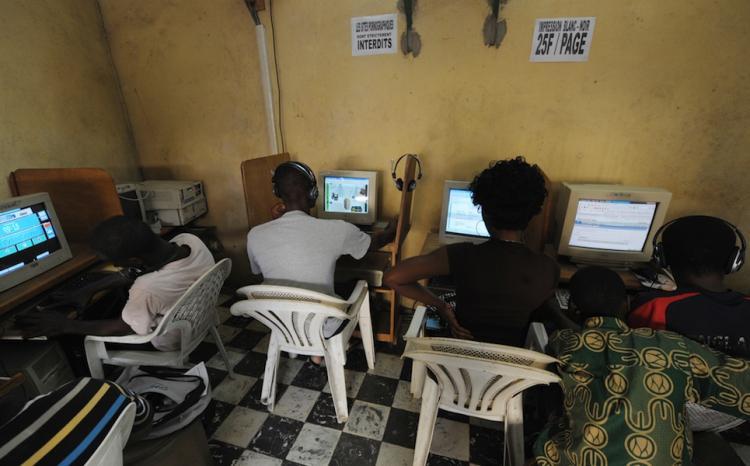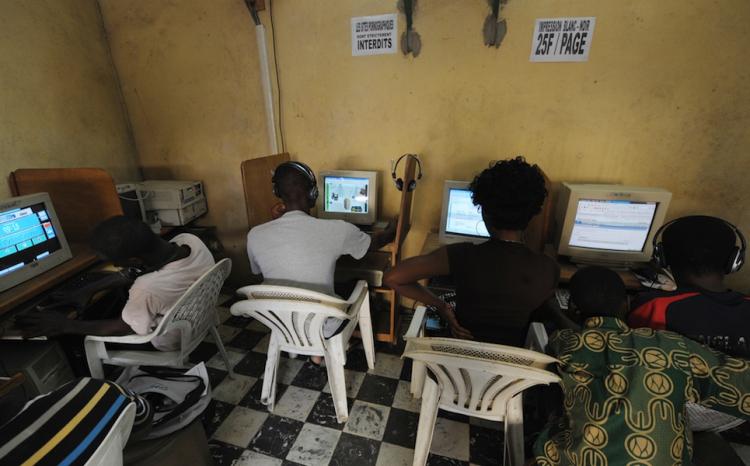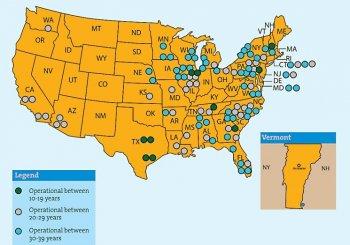Three men were recently indicted of a cybercrime that cost Internet users around the world more than $100 million.
The three men, one in Ohio, one in Ukraine, and the other in Sweden, fabricated error messages that falsely informed users that their computers were affected by malware, causing the users to believe that they needed to purchase software to fix the problem.
They then sold them software carrying names such as “DriveCleaner” and “ErrorSafe” for $30-$70, under the pretense that it would fix the nonexistent problem.
Days before, on May 11, a Canadian man named Hazim Gaber pleaded guilty to selling counterfeit medicine to people around the world over the Internet. The medicine was purported to have DCA in it, an experimental cancer drug that has not yet been approved by the U.S. Food and Drug Administration (FDA).
Charging $23.68 for 10 grams, $45.52 for 20 grams or $110.27 for 100 grams, plus shipping, Gaber sent off the fake medicine with a false certificate of analysis from a fictitious laboratory. The defendant faces a maximum charge of 20 years for each of five counts and a maximum fine of $250,000 per count.
With the rapid advancement of technology—and the average person’s inability to keep up with it—crimes like this, often called cybercrimes, have grown to be quite common. As the Web creates an increasingly interconnected world, and as economies come to depend more so on the Web, the barriers between countries and people become more faint and much more easily penetrable. Computer networks around the world are now interconnected and dependent on one another through sophisticated global systems.
In the United States alone, the Internet Crime Complaint Center, a branch of the FBI working specifically on cyberscams, received 336,655 complaints in 2009. This number signifies a 22.3 percent increase compared to the previous year. According to an IC3 report, “The total dollar loss from all referred cases was $559.7 million with a median dollar loss of $575.”
In the United Kingdom, cybercrime also poses a great threat to the security of Internet users. According to a press release by the U.K.’s Department for Business Innovation and Skills, “Each year scams cost 3 million U.K. consumers 3.5 billion pounds [US$5.1 billion] and recent research from the Office of Fair Trading (OFT) shows that e-mail is now the most common scam approach—73 percent of adults have received a scam e-mail in the past year.”
In the U.K., the growing impact of cyberscams on consumers has motivated the government to come down hard on offenders. The same press released announced a 4.3 million pound [$US6.2 million] investment over three years in various departments to combat online scams.
The efforts will be directed toward “fake products and traders who try to hide their identity to avoid giving consumer redress, ticket scams where tickets sold for concerts, festivals, football games, and other events are either counterfeit or nonexistent; and scam websites purporting to sell goods that dupe consumers into making what appear to be bargain purchases, but consumers receive either nothing at all or counterfeit products.”
According to a brochure from the IC3, there are certain signs to look for to identify cyberscams. Requests for financial information such as credit card numbers via phone or e-mail are one such sign. High-pressure sales tactics such as “limited time offers” can also signal a possible cyberscams.
Alerts of foreign lottery or sweepstake wins are another red flag for detecting cyberscams. IC3 brochure reminds Internet users that checks that are supposedly winnings from a lottery or sweepstakes should not be deposited.
Advertisements promising to correct one’s credit score for advanced fees are another common form of cyberscams.
It is further advised for those looking to make purchases over the Internet research the website thoroughly first.
The three men, one in Ohio, one in Ukraine, and the other in Sweden, fabricated error messages that falsely informed users that their computers were affected by malware, causing the users to believe that they needed to purchase software to fix the problem.
They then sold them software carrying names such as “DriveCleaner” and “ErrorSafe” for $30-$70, under the pretense that it would fix the nonexistent problem.
Days before, on May 11, a Canadian man named Hazim Gaber pleaded guilty to selling counterfeit medicine to people around the world over the Internet. The medicine was purported to have DCA in it, an experimental cancer drug that has not yet been approved by the U.S. Food and Drug Administration (FDA).
Charging $23.68 for 10 grams, $45.52 for 20 grams or $110.27 for 100 grams, plus shipping, Gaber sent off the fake medicine with a false certificate of analysis from a fictitious laboratory. The defendant faces a maximum charge of 20 years for each of five counts and a maximum fine of $250,000 per count.
With the rapid advancement of technology—and the average person’s inability to keep up with it—crimes like this, often called cybercrimes, have grown to be quite common. As the Web creates an increasingly interconnected world, and as economies come to depend more so on the Web, the barriers between countries and people become more faint and much more easily penetrable. Computer networks around the world are now interconnected and dependent on one another through sophisticated global systems.
In the United States alone, the Internet Crime Complaint Center, a branch of the FBI working specifically on cyberscams, received 336,655 complaints in 2009. This number signifies a 22.3 percent increase compared to the previous year. According to an IC3 report, “The total dollar loss from all referred cases was $559.7 million with a median dollar loss of $575.”
In the United Kingdom, cybercrime also poses a great threat to the security of Internet users. According to a press release by the U.K.’s Department for Business Innovation and Skills, “Each year scams cost 3 million U.K. consumers 3.5 billion pounds [US$5.1 billion] and recent research from the Office of Fair Trading (OFT) shows that e-mail is now the most common scam approach—73 percent of adults have received a scam e-mail in the past year.”
In the U.K., the growing impact of cyberscams on consumers has motivated the government to come down hard on offenders. The same press released announced a 4.3 million pound [$US6.2 million] investment over three years in various departments to combat online scams.
The efforts will be directed toward “fake products and traders who try to hide their identity to avoid giving consumer redress, ticket scams where tickets sold for concerts, festivals, football games, and other events are either counterfeit or nonexistent; and scam websites purporting to sell goods that dupe consumers into making what appear to be bargain purchases, but consumers receive either nothing at all or counterfeit products.”
According to a brochure from the IC3, there are certain signs to look for to identify cyberscams. Requests for financial information such as credit card numbers via phone or e-mail are one such sign. High-pressure sales tactics such as “limited time offers” can also signal a possible cyberscams.
Alerts of foreign lottery or sweepstake wins are another red flag for detecting cyberscams. IC3 brochure reminds Internet users that checks that are supposedly winnings from a lottery or sweepstakes should not be deposited.
Advertisements promising to correct one’s credit score for advanced fees are another common form of cyberscams.
It is further advised for those looking to make purchases over the Internet research the website thoroughly first.




